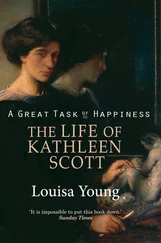After the car came (the 505 SRS), Eze joined the residents in hosting those dinner parties. His parties were attended mostly by neighbourhood people, but sometimes his work friends also came. Every once in a while, people from the Kingdom Hall attended too. In the months right after the 505 SRS came, Eze hosted those parties with greater frequency than ever, inviting as many people as he possibly could, as if he were on a mission to show off the car to them all in the shortest amount of time possible.
Chinwe and the housegirls would make trays of spicy suya — skewered beef, and chicken, and fish, all flavoured with groundnuts — and they would fry up large pans of sweet chin chin, and bake batches of meat pies and sausage rolls. Eze would set out crates of Guinness and soft drinks.
This was the way it worked: first, the people would enter the house. If Chinwe happened to be standing at the entrance, they’d walk right past her, straight to where Eze stood, and they’d tell Eze what a lovely home he had. At the onset, it certainly pleased Chinwe, the way they oohhed and aahhed — it was after all her home as well. It pleased her that they admired the entertainment centre, referring to the things in it as ‘state of the art electronics’. They’d stand, so many of them that there was barely enough space to move around. They’d eat the food that Chinwe and the housegirls had prepared. Then Chinwe would watch as Eze took out his keys, as he walked the men especially out to the front yard, as he opened up the 505 and showed them the interior. Sometimes, when Chinwe’s mama came, she joined the men in oohhing and aahhing over the house, over the car. As if she’d not seen it all before. Those sorts of things pleased her very much.
Well, needless to say, Ehoro’s Estate became a target for robbers. Months before the robbers came, the residents of Ehoro’s had held a meeting, suspecting that it was only a matter of time before they, too, were hit. There had been rumours as to the identities of the band of thieves, and so, during that meeting, the residents proposed that a collection be started. The plan was to make a peace offering to the robbers, to thwart their attempts on the estate. The residents all agreed that this was a more effective solution — better than, say, reporting the thieves to the police, which some said would only serve to ignite their anger. Also, with so many fake police officers running all over the place, who was to say that they wouldn’t be filing the report with the very robbers whom they were trying to apprehend? So the money offering was decided upon. The residents went about putting in their contributions. Everyone contributed. Everyone, except Eze.
Not that he was stingy, he said, but it went against his morals and values. A collection like that was a way of condoning bad behaviour, and so they should count him out. Chinwe believed that Eze should have paid his share. Or else he should have moved them out to a less fancy neighbourhood and should have driven less fancy cars, not the 505 SRS or the Land Rover. Something less flashy, like Chinwe’s Beetle, or like a 504 or one of the old Fords.
But he did none of that.
By then, Chinwe had been baptized a Jehovah’s Witness, but it was a thing she had done out of duty to Eze. He had insisted on it, had even grown cross with her when she appeared to suggest otherwise. After all, he said, it had been a condition of the marriage from the beginning. And so Chinwe conceded. Of course, her concession pleased her mama.
Chinwe attended the meetings with Eze: once a week, on Tuesdays, their congregation broke into small groups and met for Bible study at the houses of different elders. But for the remaining Bible study days (Thursdays, Saturdays and Sundays), they met at the Kingdom Hall.
The meetings began with a song, which they all sang, accompanied by the music that came from the cassette player at the back of the room. Then they’d sit and listen to the elder on stage who read from the New World Translation. This lecture took about an hour and sometimes Chinwe would stare at the walls and trace the cracks that ran along them, over and over again. It was a game she played with herself, to keep from falling asleep. Because whenever she fell asleep, Eze grew angry at her. He’d nudge her awake and then shake his head reproachfully at her right there in the Kingdom Hall. Sometimes, when they got home, he made jokes (he’d later call them jokes, anyway) about flogging her with a belt for having fallen asleep. Because she needed to learn to be more respectful to God, he said. And the first step in showing respect was to stay awake during discussions on God.
The evening the robbers came, Chinwe and Eze had attended the Kingdom Hall. She’d not fallen asleep, so Eze had not scolded her afterwards about that. But the story goes that, when they returned home, she went in to work in the kitchen with the housegirls, to prepare dinner. Somehow, for one reason or another, the meal had turned out too spicy. In fact there was the hot scent of crushed peppers in the air throughout the bungalow. And, when she and Eze sat down to eat, their tongues seethed from the heat of the peppers. That gave Eze all the reason he needed to be cross with her.
That night — the night of the robbery — Chinwe fell asleep in a sad state, still smarting from Eze’s scolding. She fell asleep to the sound of the floor fan, which stood at the corner of the room, humming softly with each oscillation, like a lullaby. Usually, she opened their bedroom windows halfway at night, and as she fell asleep, she listened to the sounds of the guava and plantain trees just outside, their leaves rustling in the breeze. But that night the air was still. And with the scent of crushed peppers strong in the air, travelling down their nostrils and into their throats, causing them all to cough drily, something had to be done. It followed that Chinwe turned on the fan and opened the windows all the way. Also, she left the door to their room open, the door that led to the corridor.
She awoke to the sound of shattering glass and to the sight of two men entering the room. The room was dark, but owing to the moonlight which crept in through the open windows, she could see that the men were masked. There was a metal safe that Eze kept in the bottom shelf of the bedside table. One of the men went straight to the safe, picked it up, pointed the gun at Eze, ordered him to open up the safe. Of course, Eze refused.
The man held the gun even closer to Eze’s head. There was a clicking sound. That was when Chinwe screamed, begging the man to stop. The second man, who had until then been lingering at the doorway, made his way to her side then. She could not see the look on his face owing to the mask that he wore, but it must have been sympathetic, because he tapped her on the shoulder and told her not to worry, that everything would be fine if she would only open the safe for him.
So she grabbed the safe from Eze, dialled the combination and opened it up herself. She spilled its contents onto the white bedding: tangled-up necklaces of gold, rings whose jewels shone in the dark. And then, of course, there were the wads and wads of naira bills, which the men stuck into the bags that hung from their shoulders.
‘Good work,’ the second man said, patting her on the shoulder when he was done bagging the items. But still, his gun found its way behind her head.
So, that night, the men hold their guns behind Chinwe’s and Eze’s heads, and lead them out into the corridor. Chinwe watches as Eze struggles with his man, refusing to move so that the man has to shove him forward. She knows that the housegirls are in the quarters at the back of the house. She wills them to appear, to somehow appear and scare the robbers away. She wills them to hear, but it doesn’t seem that they hear a thing.
Читать дальше












